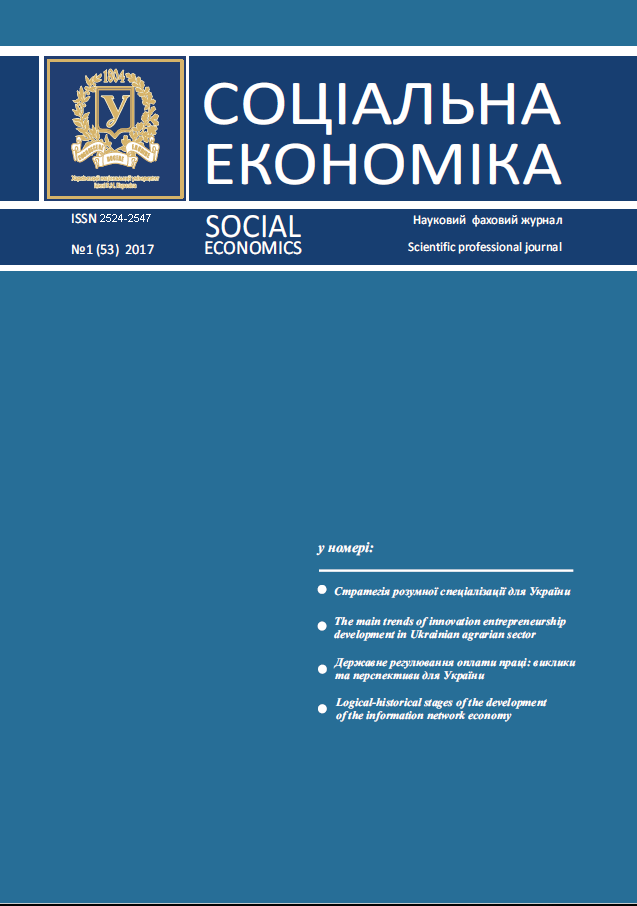Dominants of the effective model of value-oriented management of the higher educational institutions’ development
Abstract
Rethinking of the role and place of higher education in the knowledge economy is a topical issue that remains the focus of the world academic community over the past decades. A new understanding of higher education in society and integration processes involve the development of modern approaches to the improvement of composition and assessment of its potential. Important research issues relate to the development of a new model of university management, the scientific substantiation of the creation a model thatis based on the concept of value-oriented management (S. Dolan and S. Garcia) and the modern organizational and managerial paradigm with considering innovative changes and strategies for the development of higher education. The article presents the components of the university environment and trends in the development of professional skills. The main influential parameters of formation of an effective model of the value-oriented type of university management are revealed. Five aspects of the functioning of universities were proposed. They are finance, the establishment of universities to clients, the external environment, internal processes, training and development of employees with a balanced system of indicators (D. Norton and R. Kaplan). The distribution of these elements according to the characteristic between the three types of indicators is proposed. Technical indicators include a category of finance, contextual include internal processes, training and development of employees, a component of behavioral indicators are the categories of attitude towards clients and the external environment. The development goals of the university and the functioning of the management system are formed, and their content is disclosed. The set of indicators for determining the strategic goals of value-oriented management of higher education development and the concept of forming a system of value-oriented management of higher education are presented, with the help of which the leader has the opportunity to identify, direct, evaluate and monitor the activities and prospects of universities.
Downloads
References
Навроцький О.О. Критеріальна база цінносно-орієнтованого управління в системі менеджменті вищих навчальних закладів / О. О. Навроцький, М.С. Свіденська // Соціальна економіка – 2016.
Національна рада реформ. Прес-реліз “Менеджмент в освіті: е-рішення як ключ до підвищення якості управління” [Електронний ресурс]. – Режим доступу: http://reforms.in.ua, 2017.
Шваб К., Четверта промислова революція / К. Шваб ; пер. с англ. – М. : Изд-во «Эксмо», 2016. – 230 с.
Bowen W. G., Higher Education in the Digital. Princeton / W. G. Bowen, K.A. Lack // NJ Princeton University Press – 2013. – 57 р.
Dolan S. Managing by Values: A Corporate Guide to Living, Being Alive, and Making a Living in the 21st Century / S. Dolan, S. Garcia, B. Richley–2006.
Issayeva Z.A., Contemporary paradigms and technologies of administration of universities based on the theory and practice of management / Z.A Issayeva, S.Y. Trapitsyn // Recent trend in Science and Technology management – 2016. № 2. – С 120-136.
Kaplan R.S. Conceptual Foundations of the Balanced Scorecard / R. S. Kaplan, D. P. Norton // Harvard Business School, Harvard University – 2010.
Kaplan R.S. Strategy maps. Converting intangible assets in tangible outcomes / R. S. Kaplan, D. P. Norton // Harvard Business School, Harvard University – 2003.




